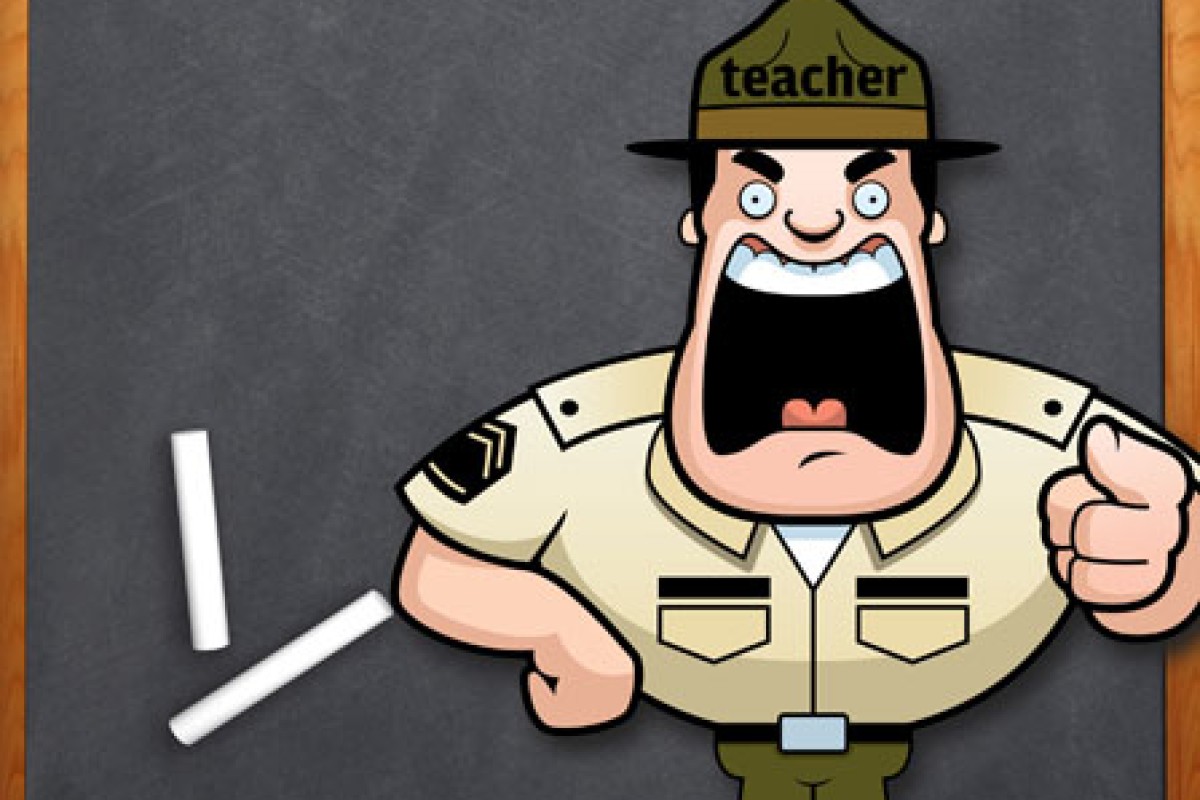 iii
iiiIt is common for teachers to punish pupils with the aim of better educating them. But a recent incident in which a teacher forced a student to do press-ups on a moving bus raises the issue of how far teachers can go.
Most students are sleepless with excitement at the mere thought of going on a study trip. But what happened to one student recently left him feeling so violated that he wrote to Young Post to tell us about it. He had been messing around with his camera on the bus with his peers when the flash went off. One of the escorting teachers ordered him to hand over the camera. According to the student he did this, but the memory card was not in the camera at the time. The teacher demanded he hand over the card.
The student says he was reluctant to do that because the memory card, which was in his portable game console, contained private pictures which he didn't feel the teacher had any right to view. The teacher gave him 30 seconds to hand over the card, and for every extra second he used, he had to do a press-up as punishment.
It took the student 47 seconds to hand over the card. As a result he had to do 17 press-ups in the aisle of the moving bus.
Once the teacher had both items, he looked at the photos in front of the student and then took the camera back to his seat. It was returned two to three days later.
"I feel that I was walked all over and even sort of bullied," the student said, adding he wasn't sure if the teacher was allowed by law to make those demands.
He wondered if he should have had the option of showing the teacher the pictures taken during the programme instead of surrendering the card; whether he had the right to refuse to hand over his personal property; whether the teacher's order to do press-ups on a bus was an acceptable punishment, and whether a teacher can view a student's memory card without his consent.
The student's father said the teacher did not consider his son's safety when he punished him. He complained to the school, but the teacher rejected the accusations.
The teacher needed to see the photos because there had been incidents of secret photography at school, a school spokesman said.
The school carried out an investigation, after which the teacher was penalised and the school apologised to the student and his parents for the teacher's inappropriate actions, the spokesman said.
Young Post asked a solicitor who was right. Chan Yin-chun, a legal consultant for the Association for School Discipline and Counselling Teachers, explains: 'Parents send their children to school to educate them, and that means their corresponding powers are given to teachers. Therefore under Hong Kong law, teachers are allowed to discipline their pupils in the manner of a reasonable parent.' That means that whether or not the teacher was acting in the manner of a reasonable parent would need to be decided by a judge - if the student decides to take the matter to court.
It seems the press-ups could be seen as corporal punishment. According to the Education Bureau's Regulation 58, no teacher should administer corporal punishment to a student. The bureau, however, does not define corporal punishment.
Chan says the law allows punishment with the aim of educating pupils, but if it induces pain, then it qualifies as corporal punishment. 'For example, forcing students to stand, copy, run and do press-ups can be seen as corporal punishment if the students feels pain in the process.'
The family is satisfied with the school's response. But the student, while highlighting pupils' rights, wishes the whole thing had never happened or, at least, that everyone would just forget about it.
<!--//--><![CDATA[// ><!-- PDRTJS_settings_1932546 = { "id" : "1932546", "unique_id" : "default", "title" : "", "permalink" : "" }; //--><!]]>